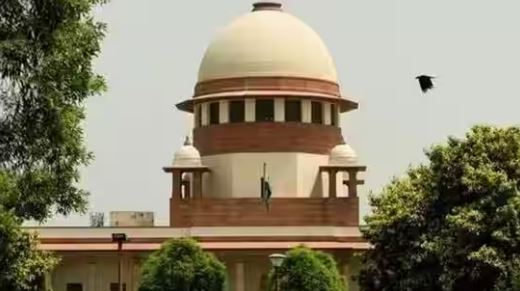
The Supreme Court on Friday directed states which have enacted religious conversion laws to file their responses in three weeks to a bunch of petitions challenging its validity.
Himachal Pradesh, one of the nine states whose law is under challenge, was the only state which filed its response.
Justifying the new law, the state in its latest affidavit said, “To curb practice of forcible conversion and to preserve peaceful atmosphere in state, it has been decided to bring an effective legislation in place.”
It said that there has been a spike in “fraudulent conversions” in the state of late and curbing such instances became the need of the hour to prevent public disorder and preserve mutual trust between different ethnic and religious groups.
Interestingly, this is the second time the state has enacted the HP Freedom of Religion Act. This law passed in 2019 has been challenged by NGO Citizens for Justice and Peace (CJP) in the Supreme Court along with similar laws enacted by states of Uttar Pradesh, Uttarakhand, Madhya Pradesh, Gujarat, Karnataka, Jharkhand, Chhattisgarh and Odisha.
Earlier, the state had a similar law introduced in 2006 but the same was struck down by the Himachal Pradesh high court in 2011.
The new law seeks to prohibit any conversion based on misrepresentation, fraud, force, undue influence, marriage, inducement or coercion. It requires any person in the state desiring to be converted to approach district authorities one month in advance and sign a declaration that the conversion is by his/her own free consent and volition. Even the religious priest performing the conversion has to give a similar intimation to the district magistrate.
The HP government further said, “There has been a spike in the instances of conversion by fraudulent means and unless same is prevented, well in time, this practice may erode the confidence and mutual trust between different ethnic and religious groups in the state.”
The CJP led by senior advocate Chandra Uday Singh pointed out that these laws violated citizens’ right to choose their religion and allowed the district authorities to undertake an enquiry into any conversion using the help of local police or other agencies. Further, if anybody failed to intimate, such conversion would become illegal.
Singh said, “This matter needs to be heard at the earliest as other states are jumping into the bandwagon. Presently there are only nine states which have enacted this law, but an atmosphere is being created in other states as well by organising daily processions against love jihad (another term to describe Hindu girls converting to the Muslim faith for marriage).
Senior advocate Dushyant Dave appearing in another set of petitions which are part of the same batch of matters said the situation was getting dangerous as hospitals run by Christians are being forced to close down in the name of forced conversions. “Nearly 40 people in a hospital in Uttar Pradesh are on the run. They were catering to poor, needy people and have been asked to shut down due to alleged forced conversion,” Dave submitted.
Singh further requested the Supreme Court to stay the HP Act provisions since a similar law enacted in 2006 was declared unconstitutional by the Himachal high court. To this, the bench said, “If we do so, we will be deciding on merits,” while refusing to accede to the request for a stay.
The top court assured that the matter will be taken up after three weeks and directed the remaining states to file their responses by then.
Besides PILs filed by CJP, the Supreme Court has converted a petition filed by lawyer and Delhi Bharatiya Janata Party (BJP) leader Ashwini Kumar Upadhyay into a suo moto petition on the general issue of “religious conversion.”
In addition, the Jamiat Ulema-I-Hind has filed a transfer petition to bring similar petitions challenging conversion laws before various high courts to be heard together in the Supreme Court.





















